Whether you’re a seasoned pet parent or just adopted your first pupper, these pet slang terms will have you speaking fluent Fido in no time
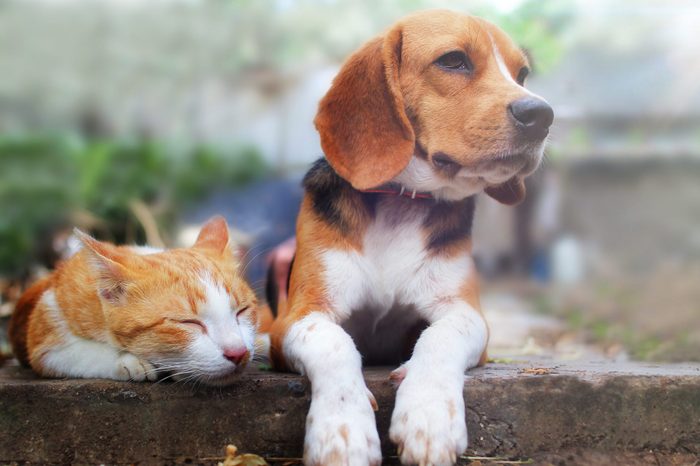
16 Funny Pet Slang Words You Never Realized Existed

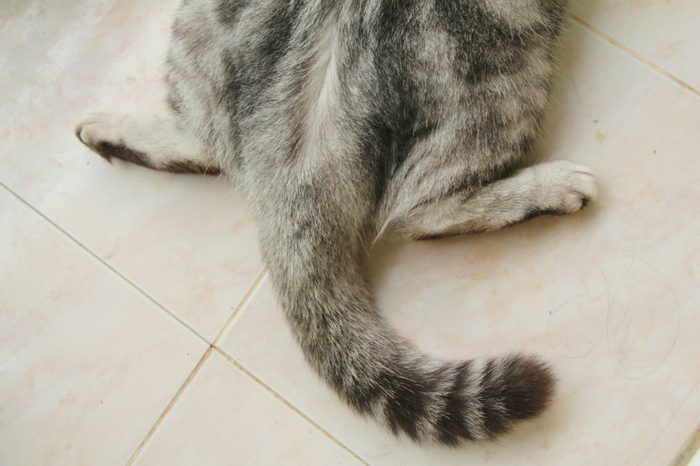
Sploot
Sploot is a slang term for an adorable-looking stretch that many breeds of dogs and cats can do, though it’s typically associated with Welsh corgis. To sploot, the pet lies on their stomach and stretches their back legs out behind them. A half-sploot, or side-sploot, is when your furry friend extends only one leg.

Bork
Dogs communicate with one another and with humans through barking. Borking is a playful way to describe a dog’s bark. And if you listen closely to a talkative dog, it actually sounds like they’re saying “bork.”
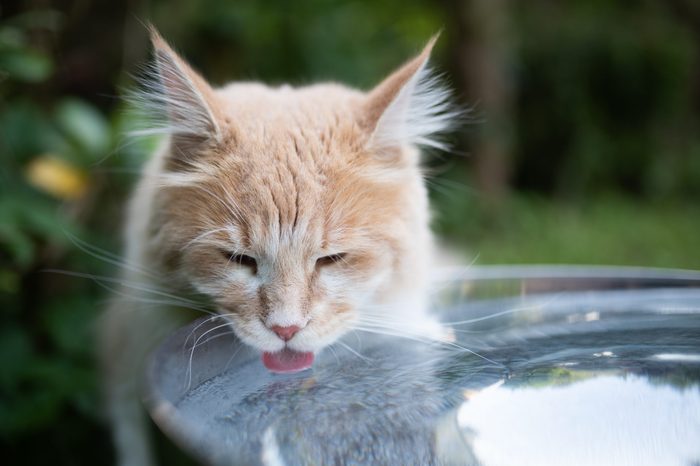
Mlem
A mlem is the slang term for when a cat, dog or even a reptile intentionally sticks their tongue in and out of their mouth quickly. The point of this behavior might be to lap up some water, eat or just taste the air. But don’t worry: He’s probably not sticking out his tongue at you.
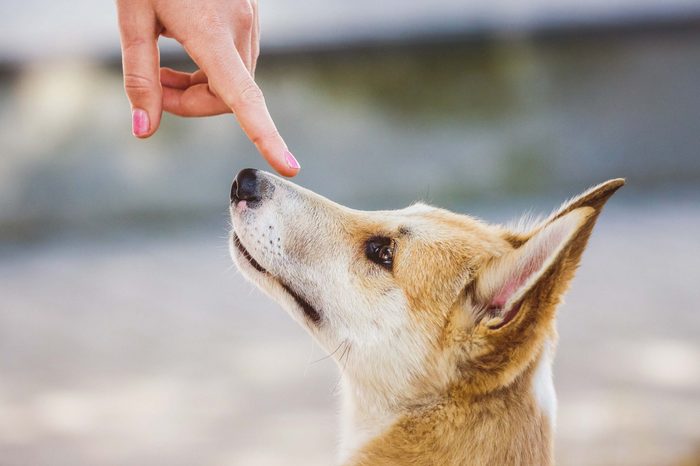
Boop
If a dog or cat has ever stuck their cute nose in your face, you know that it is almost impossible not to give it a little tap. That motion, accompanied by saying the word boop is called (wait for it) a boop. And, if your cat lets you boop her nose, she probably really trusts you.
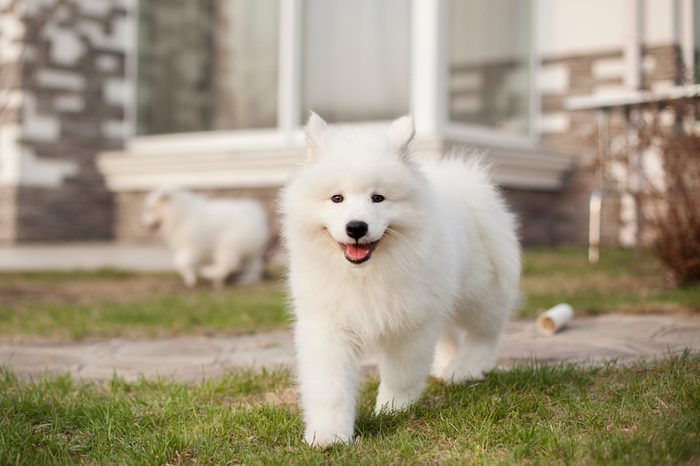
Floof
You can probably guess what this pet slang word means. A floof is a dog with a lot of hair, so much so that it makes them look much larger than they actually are. Super fluffy breeds include Samoyeds, Pomeranians and Old English Sheepdogs.
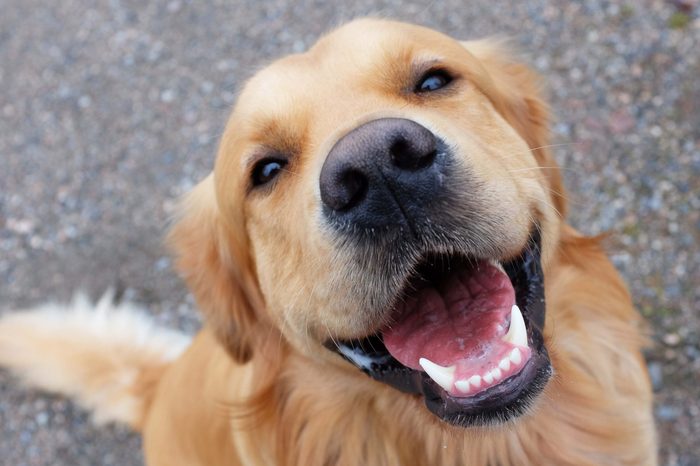
Snoot
The word snoot is already in the dictionary, meaning snout or nose. Though it’s not often used to describe a human schnoz, it’s a great word to describe a dog’s nose.
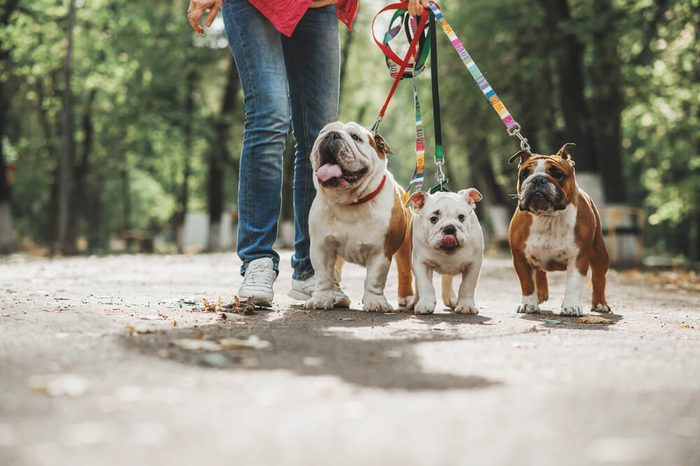
Doggo
Every dog is a doggo. It doesn’t matter its age or breed. There’s no rhyme or reason behind it—doggo is just a cute, affectionate way of referring to your pooch. You can even apply this slang word to animals that aren’t canines—seals, for example, are described as water doggos.

Pupper
Pupper is just like doggo, but it is used to describe a puppy, not a full-grown dog—though some people insist on using this pet slang word to describe an adult pet they find extra adorable.

Woofer
Woofer is a slang word used to describe a larger, burlier dog, the opposite of pupper. Great Danes, Mastiffs and Saint Bernards are among the large dog breeds that make great pets.

Smol
Some pets are so little and cute that calling them “small” just doesn’t cut it. Enter the word smol. Use this super appropriate slang word to describe your new super tiny kitten or puppy.
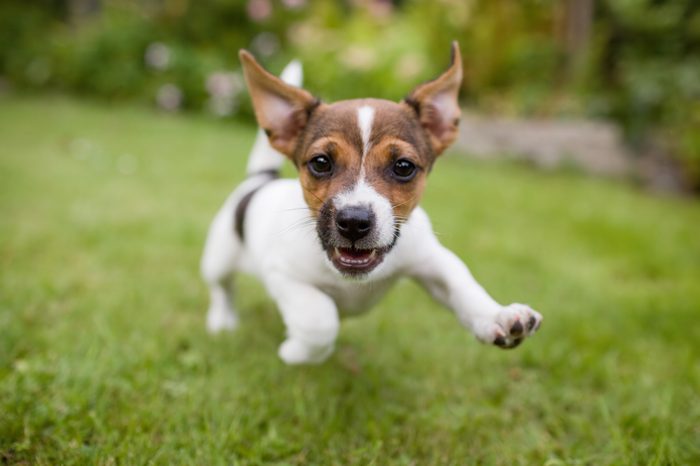
Zoomies
Every fur parent is familiar with this pet slang term. When your dog has the zoomies, it means they got a sudden burst of energy, became really excited out of the blue and ran around wildly, often in circles.
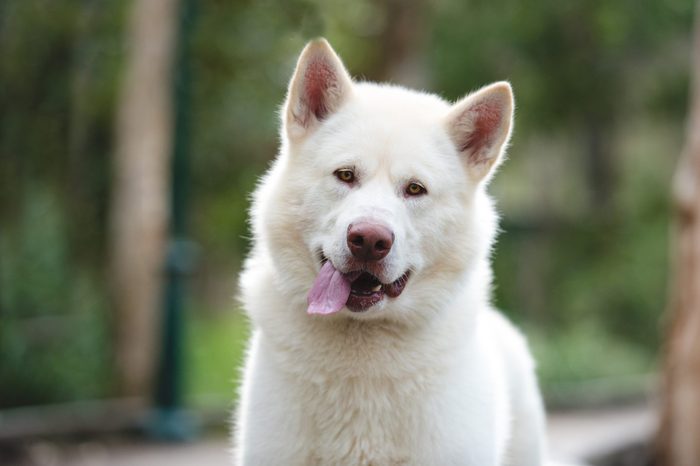
Derp
Derp is a slang term for a look of confusion, awkwardness or cluelessness from a dog or cat. An example of this goofy expression is when your dog’s eyes are crossed and their tongue is hanging out—like this doggo.
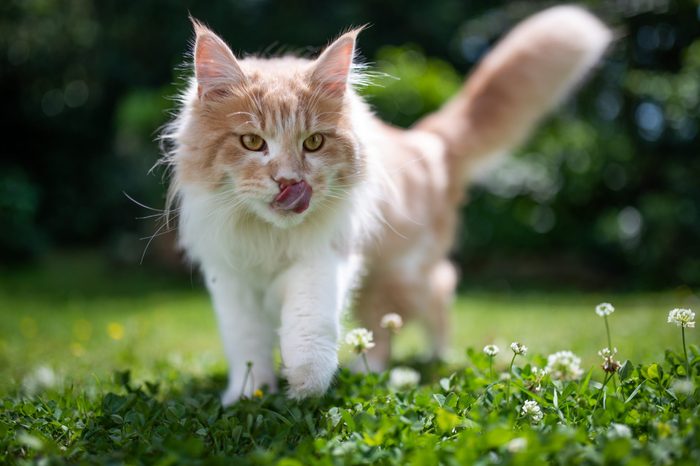
Blep
A blep, like a mlem, is an animal slang word for when your pet sticks their tongue out. The difference is that a blep is much faster than a mlem—they stick their tongue out only for a quick second—and they usually do it without realizing it.
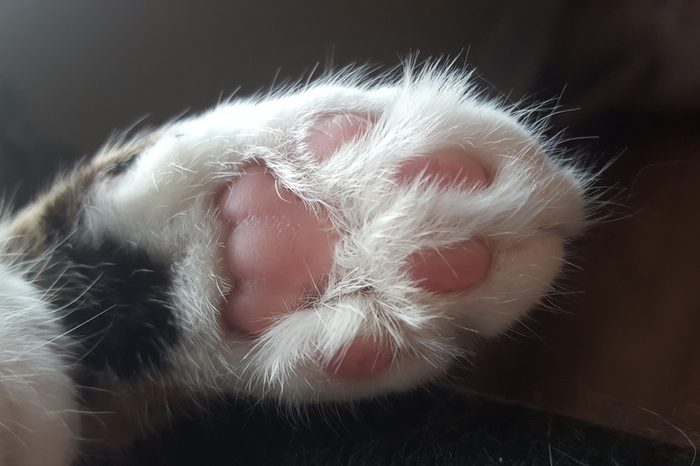
Toe beans
Those adorable pads on the bottom of your pet’s paws? The slang term for them is toe beans. And though they’re squishy and they look cute, try not to squeeze them—you could get scratched.
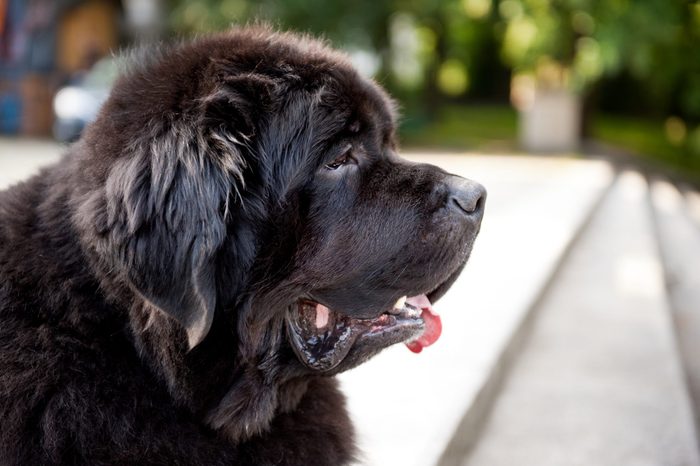
Boof
In addition to barking (borking), dogs also boof. A boof is a lower, deeper bark—where they may not even open their mouth—that a dog will use if slightly intimidated or if they know they will get yelled at for being loud.

Teef
Here’s another pet slang term that is pretty self-explanatory. Teef or teefies are when your pet shows off their teeth to you. It might be a smile or just an awkward look they give when their lip gets stuck on their teeth.
Why trust us
At Reader’s Digest, we’re committed to producing high-quality content by writers with expertise and experience in their field in consultation with relevant, qualified experts. We rely on reputable primary sources, including government and professional organizations and academic institutions as well as our writers’ personal experiences where appropriate. We verify all facts and data, back them with credible sourcing and revisit them over time to ensure they remain accurate and up to date. Read more about our team, our contributors and our editorial policies.
Sources:
- NatureVet.com: “Doggo Lingo: The Pet Parent’s Dictionary”
- ZippyPaws.com: “DoggoLingo 101: Internet Language of the Dogs”
- Merriam-Webster: “Snoot”




















